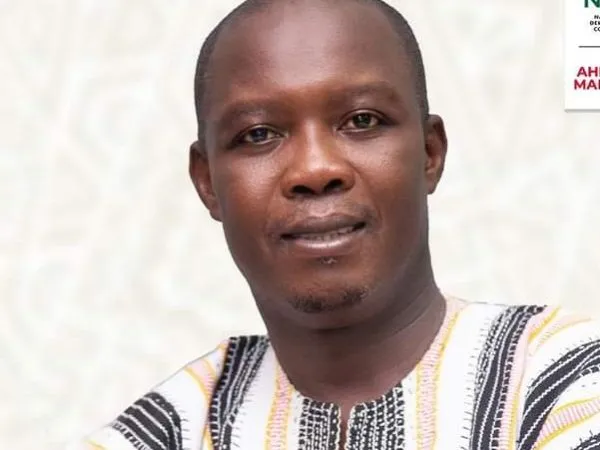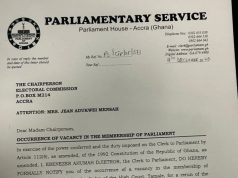Ghana’s Parliament faced a tumultuous week as ministerial vetting sessions descended into chaos, culminating in the suspension of four lawmakers following a physical clash between the Minority and Majority caucuses.
The upheaval, which saw furniture overturned and equipment damaged, has cast a harsh spotlight on rising tensions within the legislative body and sparked renewed calls for decorum.
The conflict erupted late Thursday during a heated debate over extending vetting proceedings beyond the scheduled 10 PM deadline. While the Majority caucus pushed for extended hours to complete pending nominations, the Minority staunchly opposed the move, arguing it violated agreed-upon protocols. Tempers flared as verbal sparring escalated into physical confrontations, with lawmakers overturning tables and damaging microphones in the chamber. Eyewitnesses described scenes of “bedlam,” as parliamentary staff scrambled to restore order.
In a swift response, Speaker Alban Bagbin suspended four MPs linked to the fracas: Majority Chief Whip Frank Annoh-Dompreh (Nsawam-Adoagyiri), Minority Chief Whip Rockson-Nelson Dafeamekpor (South Dayi), Deputy Minority Whip Jerry Ahmed Shaib (Weija-Gbawe), and Alhassan Tampuli (Gushegu). The decision, though praised by some as necessary to uphold parliamentary integrity, has drawn criticism from factions accusing the Speaker of overreach.
Amid the fallout, Bernard Ahiafor, Chairman of the Appointments Committee and First Deputy Speaker, described the week as both “demanding and inspiring,” underscoring Parliament’s role in shaping national governance. In a social media post, the Akatsi South MP reaffirmed his commitment to fostering “constructive discourse” despite the challenges. “While obstacles persist, our resolve to strengthen institutions and address pressing national issues remains unwavering,” Ahiafor stated, urging colleagues to prioritize unity and public service.
The incident has reignited debates over Ghana’s parliamentary culture, which has grown increasingly fractious in recent years. Analysts warn that recurring clashes risk eroding public trust in a institution meant to embody democratic ideals. “Parliament cannot function as a battlefield,” said governance expert Dr. Charity Crabbe. “When lawmakers resort to violence, it signals a failure of dialogue and leadership.”
Critics have also questioned why the Speaker bypassed established disciplinary committees, such as the Committee on Privileges or Ethics, opting instead for immediate suspensions. Constitutional law professor Kwadwo Appiagyei argued, “Due process matters. While discipline is necessary, sidestepping procedures sets a troubling precedent.”
The suspended MPs face scrutiny not only for their roles in the clash but also for the broader implications of their absence. With key legislative agendas, including budget approvals and anti-corruption reforms, pending, the suspensions threaten to stall critical governance processes.
Ahiafor’s call for resilience and collaboration now hangs in the balance. As Ghana approaches the 2024 election cycle, the episode serves as a stark reminder of the fragility of democratic norms. For citizens, the spectacle of lawmakers brawling over procedural disputes—while pressing issues like economic recovery and youth unemployment loom—fuels cynicism.
The Speaker’s office has yet to clarify the duration of the suspensions or outline steps to prevent future incidents. Meanwhile, civil society groups have demanded accountability, urging Parliament to adopt stricter codes of conduct and conflict resolution mechanisms.
As the dust settles, Ghana’s Parliament stands at a crossroads. Will its members heed Ahiafor’s plea for “steadfast service to the nation,” or will partisan strife continue to undermine their mandate? The answer may determine not only the institution’s credibility but the health of Ghana’s democracy itself.
Send your news stories to newsghana101@gmail.com
Follow News Ghana on Google News

















